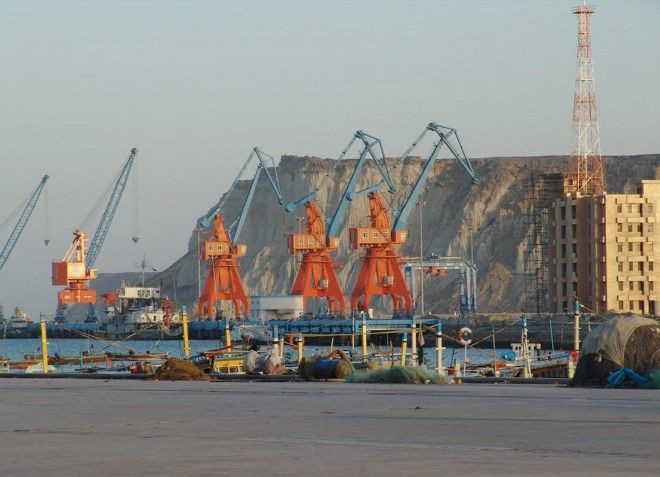Securing China's oil imports from the Middle East

The government of India has come to realize that China has been showing more than the normal interest in Indian Ocean affairs, said S.M. Krishna, India's Foreign Minister, on Tuesday.
Indeed, China has shown increasing interest in the region in recent years because the route of its oil imports from the Middle East runs through there.
China is the world's second largest user of oil, consuming nearly 8 million barrels per day in 2008. It is the third largest importer at 3.7-million barrels per day. Going forward, its energy consumption and imports will only increase.
China imports most of its oil by tankers from the Middle East, said Dean Cheng, a Chinese policy expert at The Heritage Foundation.
These oil tankers leave the Persian Gulf through the Strait of Hormuz between Iran and Oman/United Arab Emirates; travel eastward in the Indian Ocean, pass below the southern tip of India, then through the Malacca Strait located between Malaysia and Indonesia and finally up the South China Sea to arrive at ports in southeast China.
The South Asia and Indian Ocean region, therefore, is strategic for China's energy and economic interests, said Cheng. And increasingly, China is building up its influence and cultivating allies in that area to protect those interests.
Sri Lanka
Sri Lanka is an island nation strategically located just off the southern tip of India at about the mid-way point of China's oil import route.
Modern China has a history of good relationships with Sri Lanka, going back to 1950, when the country became one of the first non-Communist states to recognize China.
Currently, China is providing Sri Lanka with military, political and economic support, said Cheng.
It is helping Sri Lanka develop the Norochcholai Coal Power Project, which would help Sri Lanka meet its energy needs in the coming decade. China is also aiding in the development of a container port at Hambantota.
For China, this port would at a minimum provide a strategic mid-way point for the sea-routes between it and the Middle East, said Cheng. There is also a possibility that China's navy may eventually gain access to this port.
Pakistan
Modern China's relationship with Pakistan has been generally good since 1950, when Pakistan became one of the first countries to recognize the Communist regime of China over the Nationalist regime.
Recently, China has supplied Pakistan's military with various weapons. It also provided financing, including an initial $200 million investment, and workers to develop Pakistan's port of Gwadar. Militarily, this port helps Pakistan diversity its naval facilities, said Cheng.
For the Chinese, there is much speculation that the Gwadar port may serve as a terminus on the Indian Ocean for oil imports to China -- that is, tankers out of the Persian Gulf will unload oil in Gwadar. Oil will then travel on land through pipelines, railways and roads to China, according to Cheng. If Chinese oil imports indeed travels through Gwadar, which is west of India, their journey in the Indian Ocean would be a lot shorter and risks associated with the Malacca Strait will be eliminated.
Burma
China is one of the few states to support the current regime in Burma, said Cheng. In part, that support is based on China's economic considerations.
Going back to the Silk Route, Burma has historically been a strategic path into China, said Cheng. Today, it can serve as a terminus on the Indian Ocean and eliminate risks associated with the Malacca Strait. However, Burma is east of India, so tankers would still need to travel significant distances in the Indian Ocean.
Burma also has its own oil and natural gas reserves, so China can import energy directly from Burma.
Not surprisingly, China has been helping Burma construct oil pipelines into China and new port facilities in Sittwe, Dawei and Mergui, said Cheng.
India
Modern China and India have had a rocky relationship, going back to the Sino-Indian conflict in 1962. They are also competitors in many ways.
China-bound oil tankers have to pass near the southern tip of India, unless they go through Pakistan's Gwadar port. Therefore, Chinese oil imports may potentially be threatened by the growing Indian navy, said Cheng.
China's strategy to deal with this threat is by cultivating India's neighbors -- like Burma, Sri Lanka and Pakistan -- as friendly states to hedge against potential disruptions from India.
[India is] closely monitoring the Chinese intentions. We are closely monitoring the developments in the Indian Ocean, said Krishna on Tuesday.
Email Hao Li at hao.li@ibtimes.com
Click here to follow the IBTIMES Global Markets page on Facebook.
Click here to read recent articles by Hao Li.
© Copyright IBTimes 2024. All rights reserved.





















